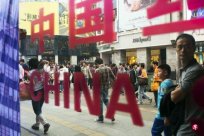Strict overseas investment censorship, often forced some private enterprises with urgency of overseas investment, have to pay funds to overseas through illegal ways such as underground banks.This method not only increases the risk of private enterprises' own funds, but also makes this part of the funds actually from the supervision of the Chinese government.
Recently, a listed company in Zhejiang Province in China issued an announcement that due to the requirements of US customs traceability, the industry importers involved in the company must submit the raw material supply chain traceability information to the US customs.The company's Vietnamese factory, which is responsible for exporting to the United States, will suspend production in the United States for indefinitely.The substantial question behind this announcement is questioning whether the US Customs has obtained the "Vietnam Origin Certificate" for the company's products.This is by no means an individual phenomenon. Commodities produced by Chinese -funded enterprises from Southeast Asia have always received the focus of US customs.
Since the Sino -US trade dispute, in order to avoid the United States' punitive tariffs on products from China, many production enterprises in China with exports to the United States as an important business have transferred part or all production capacity to Southeast Asian countries.Among them, most of the Chinese factories undertaken by Vietnam and Thailand.In 2018, in 2018, which broke out in the Sino -US trade dispute, the official website of the Ministry of Commerce of China publicly issued documents, guiding domestic enterprises to avoid US trade sanctions through the method of overseas industrial transfer.
In fact, in the early days of Sino -US trade disputes, many Chinese factories adopted relatively simple ways to avoid the impact of tariffs on the US export.For example, the main links of product production are completed in China. Other minor links include the final assembly and packaging links in Southeast Asian countries, and apply for a local origin certificate before exporting to the United States.However, this approach quickly aroused the alertness of the US Customs. The US Department of Commerce publicly followed Vietnam, Thailand, Malaysia and other countries to request these countries to strictly review the application process of the original region certificate of local Chinese enterprises. Otherwise, the United States will consider canceling it to theseNational inclusive trade treatment.Subsequently, Chinese -funded enterprises such as Vietnam, Thailand, Malaysia, and other dense Southeast Asian countries began to inspect Chinese factories in the country, ordered the rectification of Chinese -funded enterprises that did not meet the requirements of the country's origin certification, and increased the rectification of the Chinese -funded enterprise in the country's origin.Product value ratio, to reach 35%to 45%of hard requirements.
With the increasingly stricter supervision of major Southeast Asian countries in the process of origin of the origin, Chinese -funded enterprises migrating Southeast Asia have to try to arrange more production capacity in Southeast Asia.This means that more funds need to be remitted from China to Southeast Asian countries for the construction of investment projects.However, in the process of carrying out overseas investment, Chinese -funded enterprises often face reality difficulties, mainly due to China's strict foreign exchange control.
According to Chinese law, Chinese enterprises to conduct overseas investment must be reviewed by the business department, the Development and Reform Commission department and the bank. If the investment subject is state -owned enterprise, it must also be reviewed by the SASAC.In reality, cross -border investment applications of state -owned enterprises (including state -owned enterprises) are often easily approved.Because the Chinese government has always emphasized that state -owned enterprises (including state -owned enterprises) should be the main force of the construction of the "Belt and Road".In the meaning, private enterprises to carry out overseas investment are restricted behavior at the national policy level and will face more stringent censorship.
At the same time, this is also a well -known Chinese private enterprise such as Wanda Group and Evergrande Group a few years ago. They have used huge amounts of funds for overseas acquisitions. The Chinese government urgently take measures to strictly prevent the unreasonable outflow of private capital.The regulatory authorities will strictly review important matters such as the source of funds, profit status, main business, and investment rationality of private enterprises applying abroad.Used for the construction of investment projects.Strict overseas investment censorship often forced some private enterprises with urgent overseas investment, and have to pay funds to overseas through illegal ways such as underground banks.This method not only increases the risk of private enterprises' own funds, but also makes this part of the funds actually from the supervision of the Chinese government.
Combined with the above analysis, only Chinese -funded enterprises must only comply with their own compliance construction, not only to comply with the legal provisions of Chinese domestic cross -border investment, but also strictly abide by the application requirements of the origin of the origin of Southeast Asian countries in order to move abroad in Southeast Asia.Avoid risks during the journey and finally achieve the business goals of the enterprise.
The author is the founder of the Fujian Law Firm focuses on cross -border mergers and acquisitions of China and Asia's Simpan enterprises



